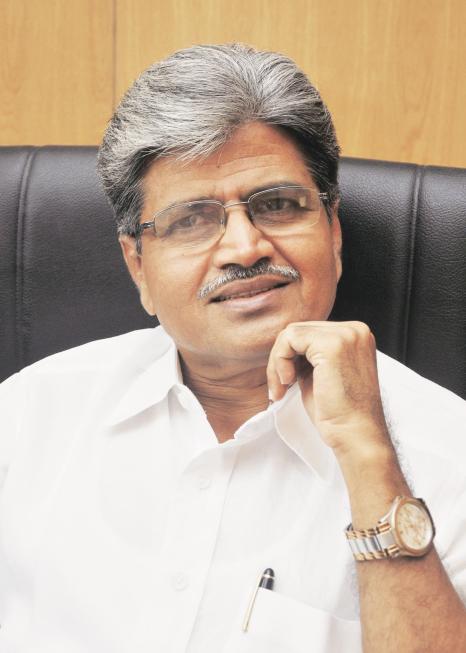Prøve GULL - Gratis
Jan Vishwas Act 2025: Decriminalisation and penalisation of drug offences through compounding
Express Pharma
|October 2025
Dr Suresh R Saravdekar, Former Assistant Director, Ministry of Medical Education & Research, Maharashtra & Honorary Consultant, Institute of Medical Sciences, Banaras Hindu University, Varanasi informs that with limited resources and overburdened courts, governments are increasingly outsourcing regulation to private or semi-private bodies. In India, this trend is visible in healthcare and pharma, where weak quasi-judicial systems often protect businesses more than the public

Around the world, one thing that is prominent in the current functioning of democracies is that if the government system cannot control and regulate professional businesses due to inadequate manpower and insufficient resources available in the judiciary and regulatory system, the regulatory system is either fully or partially privatised. This is the overall policy of governments seen globally and locally too.
The best example of this can be seen from the constant hike in healthcare charges in private hospital services and other medical expenses. Now it has reached the sky and has become unaffordable for the common people. The Clinical Establishments Act was enacted in 2010 to standardise and regulate private healthcare services in India. But because of high pressure from the private hospital lobby, the Government of India has failed to make the Clinical Establishments Act, 2010 mandatory for private hospitals in all states.
Under such a situation, to fill up this gap, the procedure of 'Accreditation' is adopted in many developed countries. The Joint Commission is one of the most widely used accreditation organisations. The International Society for Quality in Healthcare (ISQua) is the umbrella organisation responsible for accrediting the Joint Commission accreditation scheme in the US and Accreditation Canada International, as well as accreditation organisations in the UK and Australia. These bodies ensure the quality of health services and issue certification based on international standards which are continuously updated to accommodate needless new technological developments. This results in continuously hiking the charges to the patient by subjecting them to over-drugging and over-diagnosis.
Denne historien er fra October 2025-utgaven av Express Pharma.
Abonner på Magzter GOLD for å få tilgang til tusenvis av kuraterte premiumhistorier og over 9000 magasiner og aviser.
Allerede abonnent? Logg på
FLERE HISTORIER FRA Express Pharma

Express Pharma
Speed and flexibility play a critical role in how we compete with larger global players
Kriti Jajoo, VP-BD and Strategy, Shriji Polymers, as the next-gen leader, speaks on how the company is evolving with a leadership approach that balances technology, sustainability, and customer-centricity to create long-term value, in an interview with Express Pharma
6 mins
January 2026

Express Pharma
Vizag rising: Shaping India's pharma future
At the Vizag Pharma Summit 2025, hosted by Express Pharma, industry leaders discussed how quality, R&D, compliance, and emerging technologies are driving India's next phase of pharma growth
9 mins
January 2026

Express Pharma
Future of pharma: Trends, challenges & AI
Industry experts discussed how Al is transforming pharmaceutical R&D, highlighting both the promise and the practical limitations of current technologies
2 mins
January 2026

Express Pharma
Gandhi Automations presents multi-composites, high-performance door PRIME NEO for clean environments
When it comes to pharmaceutical facilities and laboratories, clean rooms' hygiene and protection from environmental contamination are the most important factors to consider.
1 mins
January 2026

Express Pharma
Can Indian biosimilars and generics restate accessibility in global underserved markets?
Hari Kiran Chereddi, MD & CEO - HRV Pharma & NHG Pharma highlights that India's success in generics is no longer enough, as the world now demands advanced biologics, biosimilars, and personalised medicines. He further emphasises on the need for stronger regulation, innovation, and investment so India can lead in next-generation therapies and expand global access to cutting-edge healthcare
3 mins
January 2026

Express Pharma
The next wave of growth will belong not to the fastest manufacturers but to the most innovative problem-solvers
As India moves into 2026, industry experts state that the next phase of growth in pharmaceuticals will depend on strengthening formulation R&D, building a skilled and adaptable workforce, and closing gaps between academic research and industry needs.
6 mins
January 2026

Express Pharma
Results win customers. Leadership discipline keeps them
Drawing themes from his new book The Dual Mandate in B2B - Driving Results. Shaping Culture, Mohan Joshi - Global C-Suite Partner & Former President, SCHOTT India, discusses leadership systems, alignment, and execution in conversation with Neha Aathavale.
3 mins
January 2026

Express Pharma
INDIA'S INNOVATION JOURNEY FROM PROMISE TO PROOF
India's pharma ecosystem is ready to embrace stronger science and bolder ideas. Turning early breakthroughs into scalable, sustainable innovation remains the challenge
8 mins
January 2026

Express Pharma
PRUV® -The original Sodium Stearyl Fumarate
JRS Pharma's PRUV® is the original sodium stearyl fumarate (SSF) introduced in the market over 20 years ago
5 mins
January 2026

Express Pharma
Odisha's pharma pitch
The inaugural Odisha Pharma Summit 2025 delivered strong early signals of intent, positioning the state as an upcoming destination for PLI-triggered expansions, to complement existing pharma hubs. As Hemant Sharma, ACS Industry Dept and I&PR Dept, Govt of Odisha puts it, the aim is to “become a good, viable second option.” How fast can the eastern newcomer catch up and become India's next life sciences hub, asks Viveka Roychowdhury
5 mins
January 2026
Listen
Translate
Change font size

